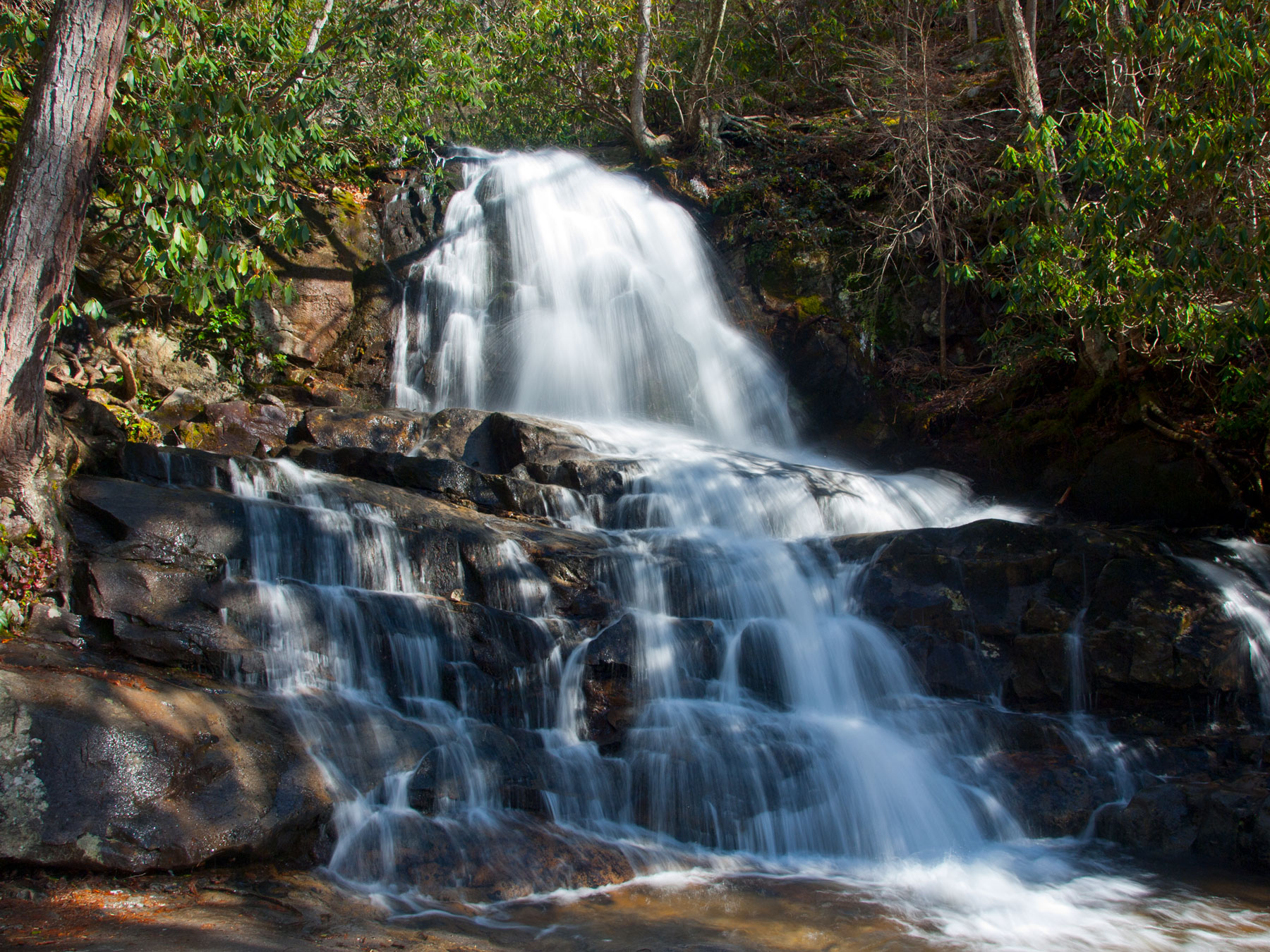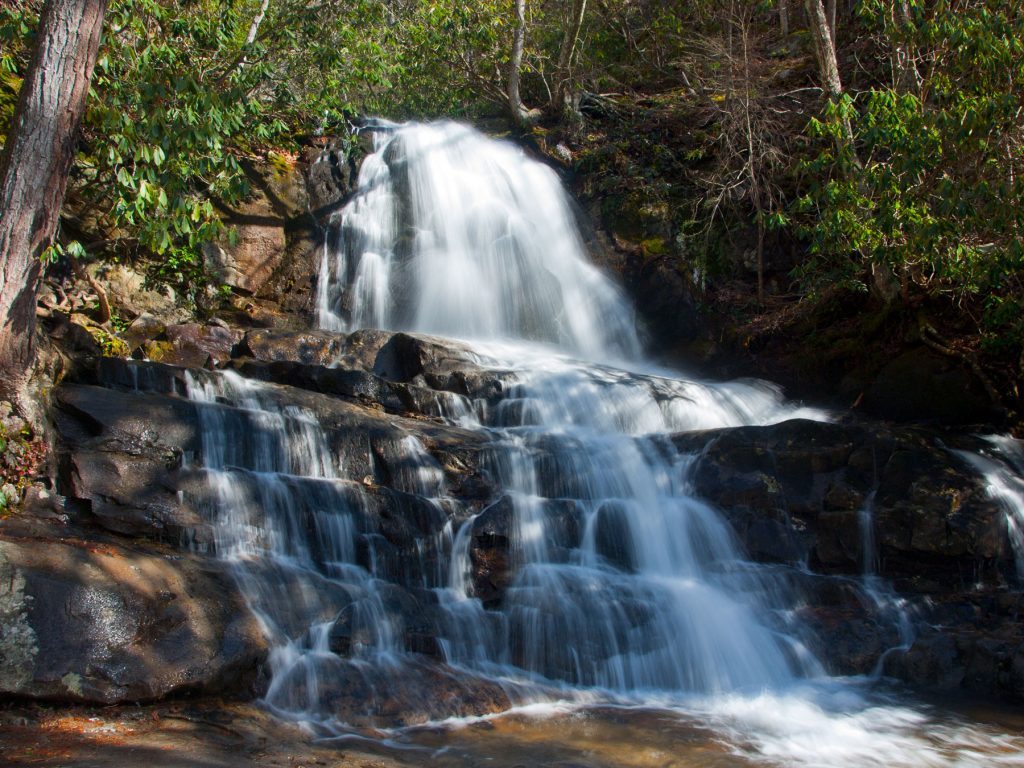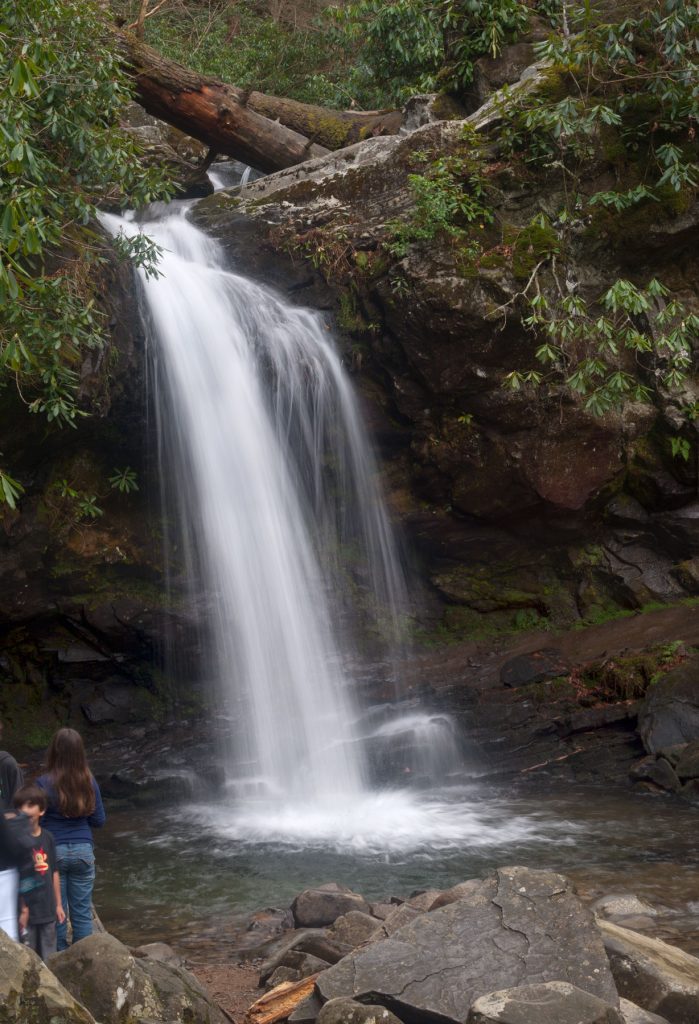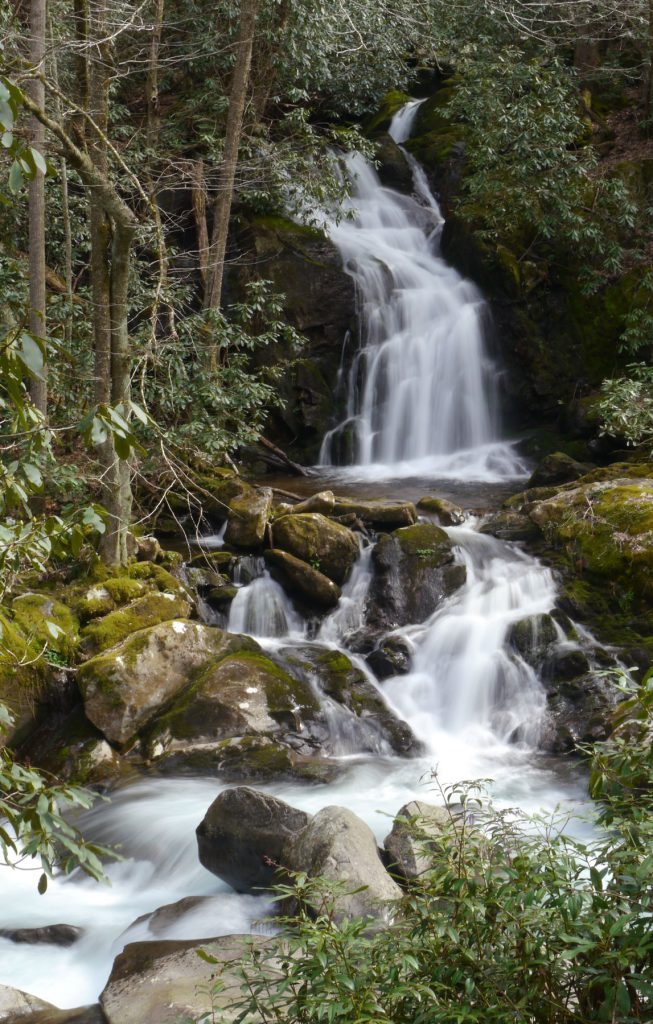

The Smokies have waterfalls, dozens of them. Tall, wide, swift, slow. You can find them on the roadside and deep in the Smokies wilderness.
Walking to a beautiful waterfall is the objective of many Smokies hikers. The hike is often its own reward, but to round a corner in the forest, after hearing the noise of a waterfall for maybe half an hour, and see water tumbling down a rock outcropping in a beautiful setting is magic of a special sort.
To attempt to rank the waterfalls and cascades of the Smokies is a fool’s errand, but here at Trailside Talk we often wander into these thickets. The goal is to encourage conversation and visitation and maybe to introduce park travelers to new vistas.
“I love waterfalls because they are windows into the Smokies,” said Charles Maynard, one of the authors of Waterfalls of the Smokies. “We see geology, microclimates with flora and fauna, and even history through the names.”
I haven’t seen every waterfall in the Smokies. In fact, I haven’t even seen most of them. But of those that I have seen, here are some of my favorites in no particular order:
 Laurel Falls – Much loved and easily accessible, this waterfall is a must-see and would probably be near the top of many hikers’ “favorites” list of places in the park. It falls about 85 feet in a couple of sections into a pool. The trail to the falls is 2.5 miles round trip and starts on Little River Road about four miles from the Sugarlands Visitor Center. On most days the parking lot overflows, much like the falls.
Laurel Falls – Much loved and easily accessible, this waterfall is a must-see and would probably be near the top of many hikers’ “favorites” list of places in the park. It falls about 85 feet in a couple of sections into a pool. The trail to the falls is 2.5 miles round trip and starts on Little River Road about four miles from the Sugarlands Visitor Center. On most days the parking lot overflows, much like the falls.
Abrams Falls – As if the magic of Cades Cove isn’t enough, the one-way loop road passing through the cove also provides access to the trail leading to Abrams Falls. Depending on the level of water flow, Abrams falls in a sheet to a large pool. The trail is five miles round trip and includes some climbs, but the scenery is worth the effort.
Grotto Falls – Unlike most other waterfalls in the park, Grotto Falls allows visitors to walk under the water flow. The falls pour off a rock face 25 feet to a pool. The Grotto Trail is the avenue on which llamas carry supplies to LeConte Lodge, so you might have an unusual animal encounter along the way.
Place of a Thousand Drips – Endlessly fascinating, this is one of the park’s oddest natural features, and it’s easy to visit. It’s on the side of the road along the Roaring Fork Motor Nature Trail near Gatlinburg, so it’s possible to view it from a vehicle. Folks in cars behind you might not appreciate you sitting in the old Chevy to enjoy the view, however, so it’s better to park nearby. A jumble of rocks diverts the water from Cliff Branch in countless directions as it eases down toward Roaring Fork.

Mouse Creek Falls – Located in the Big Creek area on the eastern edge of the park, this waterfall is sort of a two-for-one. Water drops about 40 feet into a small pool before falling ten more feet in a beautiful, leaf-strewn setting.
Mouse Creek Falls is one of Maynard’s favorites in the Smokies because of its beautiful hourglass shape. “Big Creek is a symphony of rushing waters with Mouse Creek providing a nice solo on the other side of the swift channel,” said Maynard. “Midnight Hole is on the way to Mouse Creek. Its counterpoint is a short fall into a deep plunge pool with the main flow. Walking up the old logging railroad bed, a gradual uphill grade, allows time to enjoy the cascades in the creek while seeing the history of the logging era at places like Brakeshoe Springs. Although these are the closest falls to an interstate, the area also is relatively quiet and uncrowded.”
If you visit these or other waterfalls in the park, walk carefully. Do not attempt to climb on rocks in or near the waterfalls. The surfaces are obviously very slippery. There have been numerous fatalities and serious injuries in waterfall areas in the Smokies. Be safe and keep an eye on the children.
Subscribe to get the latest posts sent to your email.
The Great Smokies Welcome Center is located on U.S. 321 in Townsend, TN, 2 miles from the west entrance to Great Smoky Mountains National Park. Visitors can get information about things to see and do in and around the national park and shop from a wide selection of books, gifts, and other Smokies merchandise. Daily, weekly, and annual parking tags for the national park are also available.